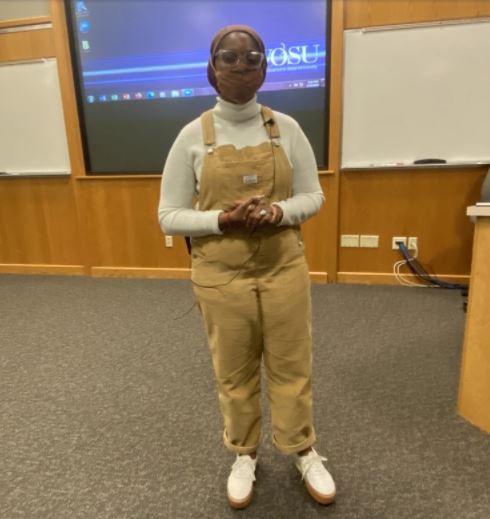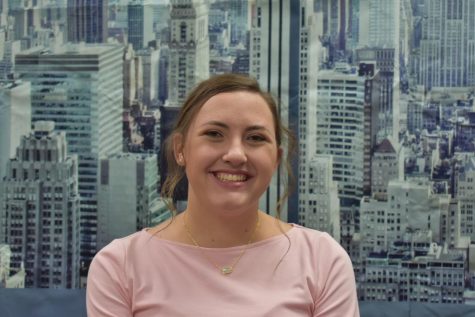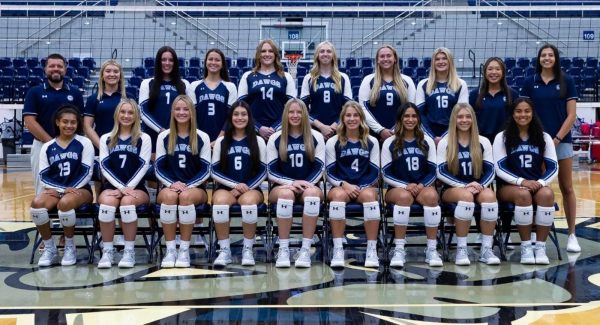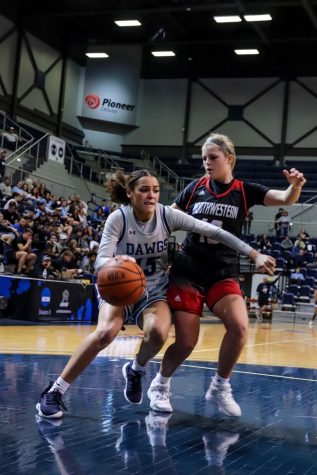Representative Mauree Turner speaks at SWOSU

Representative Turner
Oklahoma Rep. Mauree Turner (D) came to SWOSU’s campus on Monday, Jan. 19, as part of Martin Luther King Jr. week put on by the Dean of Students Office.
Mauree is the first non-binary congressperson in the nation and the first Muslim in the Oklahoma congress. Her policy goals focus on issues that she experienced and noticed in her childhood and throughout her time in college.
Turner grew up in a single-parent household in Oklahoma. Her father was incarcerated throughout her childhood, so her mother acted as the sole provider. Because of this, Turner spent time in after school programs like the one provided by the Wilson Community Center. In high school, Turner began participating in student government and learning about community activism.
In college, she originally chose to major in pre-veterinary sciences, but quickly became involved with organizations on campus, like the NAACP. Because of this, she began to pursue helping underrepresented communities find ways to become more active and gain more representation.
According to Turner, “Community organizing is a community call to action.” This means getting communities involved in voting causes and recognizing that to help get their under-served communities, they need to come together to act in their collective ideals that will benefit the whole area rather than a particular subset or interest.
Turner became involved with the Smart Justice Program from ACLU, which, according to their website, is an initiative to decrease the U.S. jail and prison population by 50% and to combat racial disparities in the criminal justice system. “Oklahoma does a great job of incarcerating citizens long after they leave the prison system,” a point Turner makes unabashedly. Incarceration not only affects families, but it makes it hard for the person to rejoin society and causes major disparities and systemic issues.
According to justice.gov, “Reentry programs and reentry courts are designed to help returning citizens successfully ‘reenter’ society following their incarceration, thereby reducing recidivism, improving public safety, and saving money.” That being said, Turner brings in the point that a lot of programs’ qualifications to be admitted are biased based on religious views and finances. Studies show that incarceration over multiple generations causes significant disparities in the ability to accrue and keep wealth, which in turn affects the ability to pay for schooling for the younger generations as well as trouble attaining funds from lending companies.
When Turner was running for their congress position is the 88th district, she had a policy of small donor donations only, meaning that all of her campaigning money came from individuals or small businesses rather than large corporations and Political Action Committees. Using small donors allows her to represent those in her community who don’t feel seen or heard or valued. She won her seat for her county on a funding of $23,000, which in the political sphere is a minuscule amount. In her campaign, she made sure to include ways for non-English speakers to become aware of voting. Twenty-five percent of her district is made up of the Latino community. Turner states, “Just because you don’t speak English does not mean that you do not deserve representation.”
Some of Turner’s key policy interests to help shape Oklahoma include voting restoration policies, criminal justice reform, and police reform. Because a disproportionate number of African Americans and minorities make up a large portion of Oklahoma’s and the county’s prison system, she wants to help ease some of that disparity and get them more access to representation by allowing them to vote. According to Turner, “How are people supposed to feel that they belong if their interests are not being represented and their needs are not being met?”
With criminal justice reform, she wants to look at the laws that go into what counts as criminal and how long maximum penalties are in regards to how certain charges can be decriminalized, as well as the discrimination issues that go into Oklahoma’s criminal justice system.
Her plans for police reform focus on how the police train and how they allocate the funds and credits for their training. Current training is CLEET, which stands for Council on Law Enforcement Education Training. In the current guidelines, there is a major deficit in training in the areas of mental health. In some of the class offerings, it states that one of the courses over Muslim and radical Islam can substitute credits in mental health training.
Representative Turner’s first few days got on with a rocky start on Jan. 5, 2021, as the vote on the state’s house rules was in order. She proposed to change the language of the dress code to be more inclusive to a gender-free statement as to not exclude anyone who did not fit within those gender norms. Defining this language may seem pedantic to some, but it sends out a major message: all are not welcome.
To continue greater unity and progress in this country and to help represent those who have no voice, there has to be change in how we view oppression, discrimination, and lack of representation. If people don’t see themselves as valued or cared for within their communities, how are they supposed to be successful and help build up their communities?
Turner leaves with the powerful quote: “You do not need to be personally affected to help others.”

Sydney Graves joined The Southwestern staff during the fall semester of 2020. She is co-editor-in-chief with Rachel Masson and serves as Campus Life editor....







